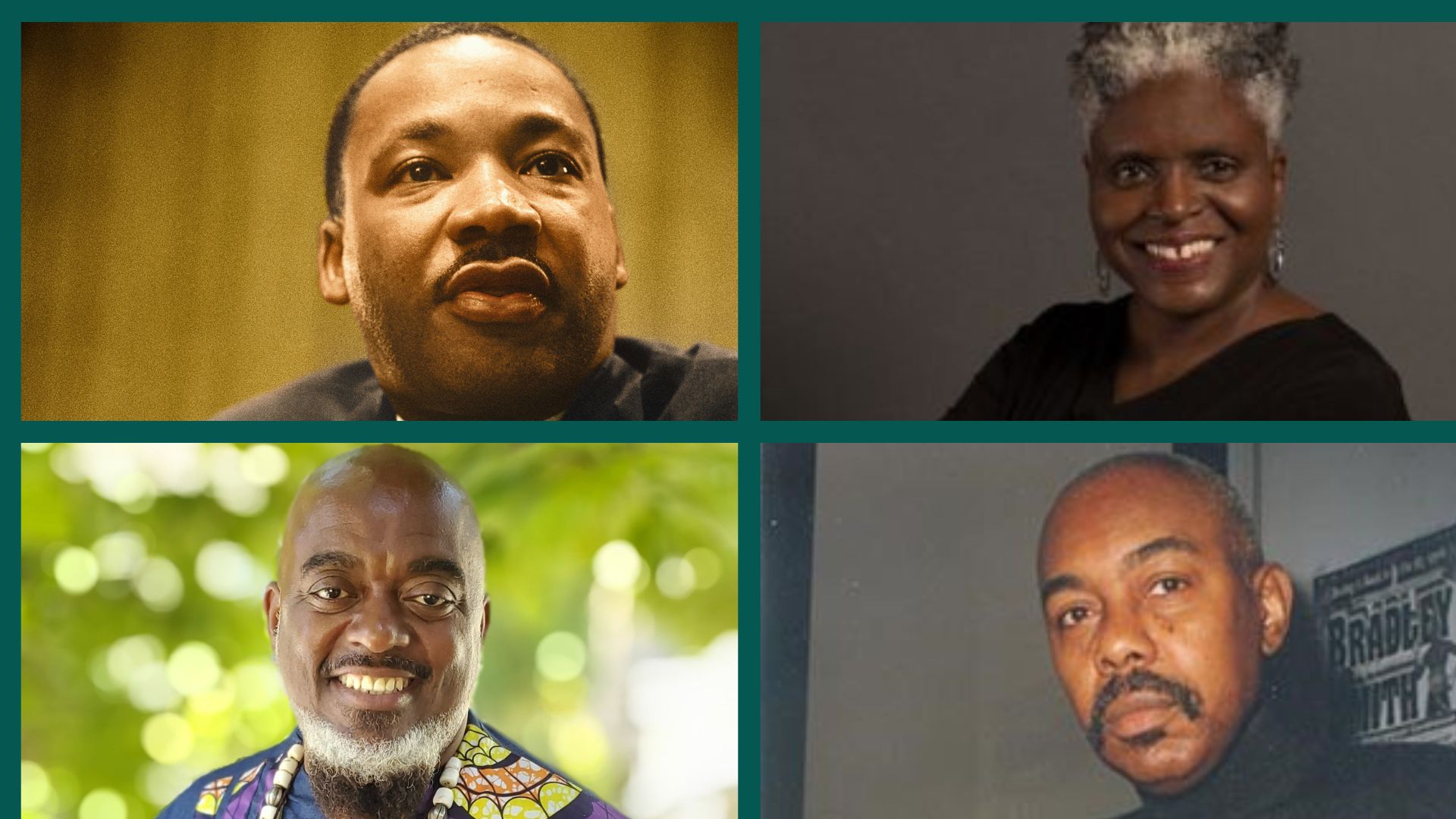
In recognition of Black History Month, some of UBC SPPH’s faculty reflect on Black leaders who have influenced their work in public health. From civil rights icons to musicians and activists, these leaders have shaped perspectives on structural inequities, community resilience, and the power of language. Their legacies continue to inspire research, advocacy, and action in the pursuit of health equity.

Martin Luther King, Jr. (born January 15, 1929, Atlanta, Georgia, U.S.—died April 4, 1968, Memphis, Tennessee) was a Baptist minister and social activist who led the civil rights movement in the United States from the mid-1950s until his death by assassination in 1968. His leadership was fundamental to that movement’s success in ending the legal segregation of African Americans in the South and other parts of the United States. King rose to national prominence as head of the Southern Christian Leadership Conference, which promoted nonviolent tactics, such as the massive March on Washington (1963), to achieve civil rights. He was awarded the Nobel Peace Prize in 1964.
“His work inspires me to work through my research and activism towards dismantling structural racism in the west and structural casteism in South Asia and beyond, both being inherently the same in origin, characteristic contents and impacts on the peoples health and well-being,” says Dr. Drona Rasali, Adjunct Professor.

Terrance Kelly is the artistic director of the Oakland Interfaith Gospel Choir, has garnered extensive musical credentials in both gospel and jazz music. His credits include choral arrangements on albums by Linda Ronstadt and the Kronos Quartet, among others. Mr. Kelly received an Emmy Award for his choral arrangement of OIGC’s KGO-TV public service announcement. In 2005 he received the Local Heroes Award from KQED Television for his directorship of the Oakland Interfaith Youth Choir and was also honored at the Gospel Music Awards. In 2013 he was awarded the Dr. Edwin Hawkins Excellence Award. Mr. Kelly currently serves as Minister of Magnification at Oakland’s Imani Community Church.

Dr. Karen Burke is a sought-after clinician, conductor, composer and music director in the field of African-American vocal music. As an authority on the history and performance practices of Gospel music, she has worked with major choral ensembles and organizations including the Toronto Mendelssohn Choir and Youth Choir, Amabile Choirs of London, Canada and Pro Novis (Poland), as well as numerous schools and church congregations. In 1988, she co-founded the Juno Award-winning Toronto Mass Choir and continues to serve as their Artistic Director, touring nationally and internationally.
“Both (Kelly and Burke) emphasize that when communities gather to find joy and strength, they can collectively overcome unimaginable problems. This is a direct parallel to our need for community action in public health,” says Dr. David Patrick, Professor in Population and Public Health. “For those of us who appreciate the intellectual argument for action, there is added value in making an emotional and collective connection to the work.”

Eddie Ellis (1941-2014) was a Black Panther who served 23 years in prison for a murder he did not commit. Upon his release in 1992, he worked constantly on prison issues, helping to establish organizations such as the Community Justice Center, the Prison Moratorium Project, the Center for NuLeadership on Urban Solutions, and the WBAI-FM radio Program, On the Count: The Prison and Criminal Justice Report. He went on to become an influential and respected academic and activist, campaigning to reduce the impacts of mass incarceration in the United States and beyond.
The contribution of Ellis’s that Dr. Sofia Barlett, Assistant Professor (Partner) in Infectious Diseases, found most inspiring is a letter he wrote in 2003 titled ‘An Open Letter to Our Friends on the Question of Language’. In it, Ellis wrote; “When we are not called mad dogs, animals, predators, offenders and other derogatory terms, we are referred to as inmates, convicts, prisoners and felons—all terms devoid of humanness which identify us as “things” rather than as people. These terms are accepted as the “official” language of the media, law enforcement, prison industrial complex and public policy agencies. However, they are no longer acceptable for us and we are asking people to stop using them.”
“Eddie Ellis made me think really critically about the language I use when I describe the people who I am researching, and he made me more aware of the impacts of the language we use,” says Dr. Barlett, whose research focusses on sexually transmitted and blood-borne infections, including HIV and hepatitis C virus. Much of her research is associated with prisons and incarceration, as these infections are vastly more prevalent among people who are in prison, compared to the overall population.